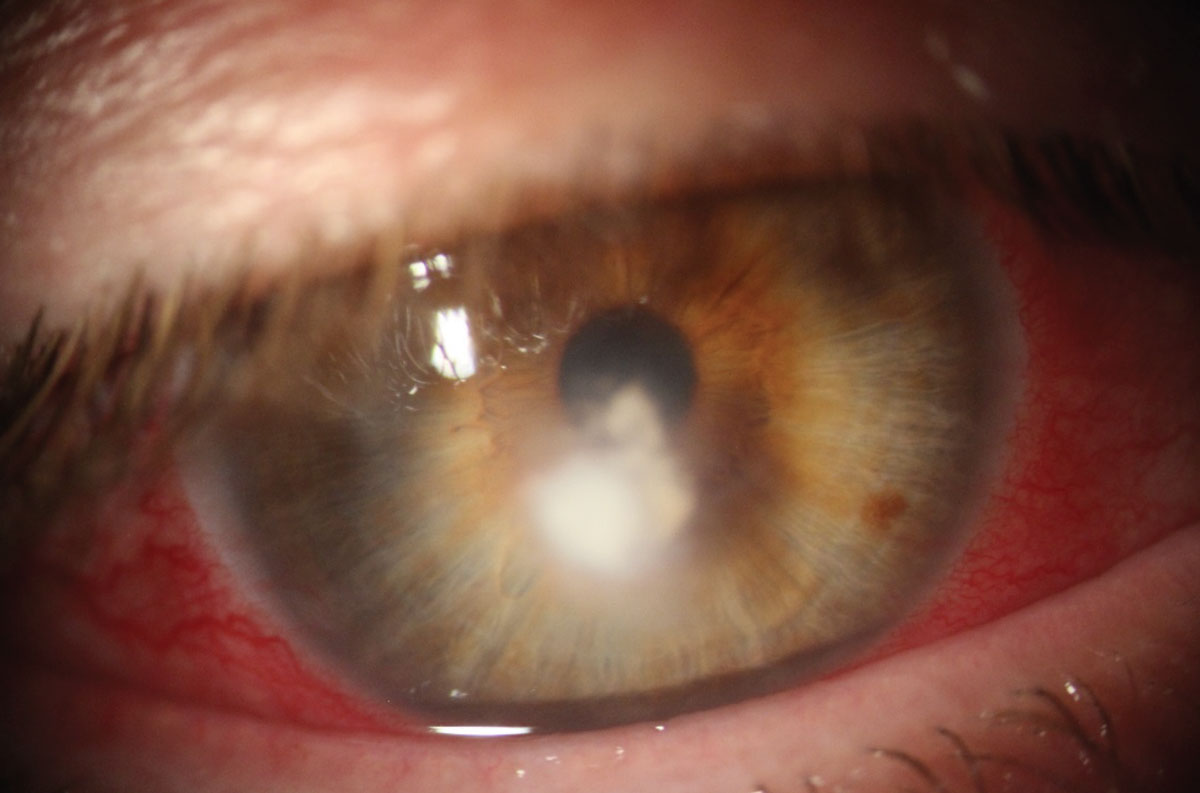 |
Fungal keratitis (shown here in a different patient) likely developed from malnutrition. Photo: Delaney Kent, OD. Click image to enlarge. |
Though rare in advantaged countries, vitamin A deficiency it may still occur as a result of malnutrition or extreme dieting, as was the issue in a recent case report. An Australian woman in her 60s presented with bilateral corneal perforations and decreased visual acuity. Culturing revealed a yeast colony comprised of Candida albicans in her left cornea.
Her diagnosis was corneal perforations secondary to bilateral fungal keratitis and hypovitaminosis A. The researchers wrote in their paper that her vitamin deficiency was likely due to a diet of nothing but bananas and yogurt.
She underwent tectonic corneal grafts for the perforations and received retinyl palmitate as well as oral and topical voriconazole. She declined epithelial defect management, despite being informed of the risk of recurrent microbial keratitis, and did not change her diet. Her final vision was hand movement OS and 6/30 OD.
The ocular sequelae of vitamin A deficiency include nyctalopia, corneal ulcer and scarring. Ocular features may include Bitot’s spots (elevated, “foamy” conjunctival plaques) and conjunctival and corneal xerosis; however, the authors noted in their paper that, like this case, those classically described features may not be seen on examination. Nevertheless, they wrote, “their absence shouldn’t preclude clinical suspicion of vitamin A deficiency.”
“Early and specific questioning to explore the causative condition is imperative in routine clinical practice to avoid omitting the history of hypovitaminosis A,” they continued. “This case highlights the importance of considering a multifactorial cause in corneal perforations” and diligently obtaining a thorough case history. “Consider vitamin A deficiency in cases of corneal perforation or impending perforations, especially in the context of an unusual or nutrient-deficient diet,” the report concluded.
Chung I, Tavassoli S, Wong N, et al. Vitamin A deficiency presenting with fungal keratitis and bilateral corneal perforations. BMJ Case Rep. 2022;15:e247853. |


